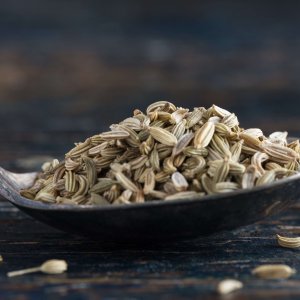We hear so much about inflammation in the body being the culprit for so many health issues. There are all kinds of diets and supplements that claim to reduce inflammation. But what exactly does it all mean? What is the cause of inflammation, and why does this natural process of the body wreak havoc? Here we will discuss the signs and symptoms of mild to chronic inflammation and how it affects sleep in a vicious cycle.
What is inflammation?

Inflammation is any condition where a part of the body becomes red, swollen, hot and sometimes painful. Inflammation can happen as a response to injury or infection. One of the most simple forms of inflammation is cutting your finger or burning your hand. Inflammation is critical to the body’s immune response because it helps the body to fend off infection and repair damaged tissue.
But there are more subtle types of inflammation where the immune system releases small amounts of inflammatory molecules inside the body in an attempt to ward off disease and protect against illness.
If the inflammatory process goes on for too long, it can become problematic.
Common Symptoms of Inflammation
As a Result of Injury:
- Redness
- Swelling (edema)
- Heat
- Pain
- Loss of function
Internal or Systemic Inflammation:

- Fatigue
- Chest pain
- Fever
- Abdominal pain
- Joint pain / loss of mobility
- Rash
Cardiovascular Effects
In the cardiovascular system, low grade inflammation increases the risk of type 2 diabetes, non-alcoholic fatty liver disease, cardiovascular disease, and obesity. This is because fatty tissue increases with immune cell infiltration (particularly tumor necrosis factor) and interleukins, and this alters insulin function and lipid metabolism.
You may experience high blood sugars, pee way too much, or feel dehydrated despite drinking water.
Autoimmune Disease
Emerging evidence suggests that low grade inflammation alters gut microbiota, and this can lead to full blown inflammatory conditions, such as celiac disease, inflammatory bowel disease, and rheumatoid arthritis.
Some signs of poor gut health include constipation, diarrhea, stomach upset, bloating, or foul smelling stool.
Neurological Issues
Low grade inflammation can also cause induce inflammation of the tissues of the nervous system, or neuroinflammation. This can lead to fever, fatigue, anhedonia, depression, and cognitive impairment.
Inflammation and Sleep: a vicious cycle
Scientists first discovered the link between sleep and inflammation back in the 1970s. Early studies first demonstrated that inflammatory mediators like interleukins, tumor necrosis factor, and cytokines, interact with the central nervous system. These cytokines increase our sleepiness, and they serve as a defense mechanism during acute illness.
Chronic inflammatory diseases, especially those with pain, may lead to insomnia. And insomnia may worsen inflammation. For example, in one study, people with asthma and arthritis were twice as likely to struggle to sleep as people without these inflammatory conditions. Additionally, the Arthritis Foundation states that up to 70% of people with osteoarthritis struggle to fall asleep and stay asleep.

The worst part about insomnia when you already have an inflammatory disease is that insomnia makes you disposed to even more inflammation. So the underlying disease gets worse, and then the insomnia gets worse, perpetuating a vicious cycle.
As if that weren’t bad enough, autoimmune diseases also increase the occurrence of insomnia. For example, overactive thyroid (hypothyroidism) is characterized by insomnia. The pain of rheumatoid arthritis causes insomnia in more than 80% of people with disease. 60% of people with lupus or myasthenia gravis report sleep disturbances, and 20% report daytime sleepiness.
The detrimental effects of sleep deprivation
When we are sleep deprived, the body produces a defense against illness by increasing white blood cells and inflammatory cells, like interleukins, cytokines, and C-reactive protein. The increase in inflammatory mediators leads to more inflammation throughout the body. So even if you don’t have disease to begin with, lack of sleep can create the ideal environment for disease.
Reducing Inflammation
The good news is that inflammation is completely reversible. Many lifestyle changes can help reduce or eliminate most inflammation in the body:

- Diet: Eat a diet rich in fruits, vegetables, and whole grains. Limit sugars, processed foods, and meats. Learn more about the Health Benefits of a Plant-Based Diet.
- Exercise: Just 20-30 minutes of moderate exercise per day can help reduce chronic inflammation.
- Manage stress: Chronic stress influences sleep and immune system function. Consider a yoga class or daily meditation to reduce stress. Check out this post for more information about how stress affects immune function.
- Lose weight: Obesity also contributes to both sleep quality and bodily inflammation.
Interested in learning a simple technique for relieving stress? Check out this post about Yoga Nidra for Stress.














